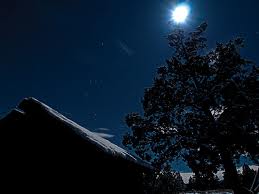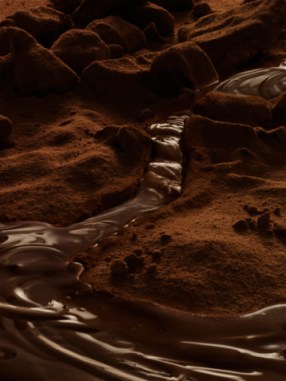I read somewhere that scientists equate the universe to the ticking of a big clock whose mechanism is losing energy, winding down to a stop. They give it complex explanations of thermodynamics, entropy and kinetic energy, but essentially, the universe began with a fixed amount of energy and in every second of the millennia, that energy is being used and will not be refueled. So, the stars are burning out, giving off their heat as they become unavailable energy and the universe will go dark and cold and dead.
You and I, we’re finite, begun by the creative power of the sperm fertilizing the egg and once planted, all factors being correct, the little seed grows until it must burst forth from the womb, then nurtured and cared for, the little life grows into adulthood. We’re refueled to some degree along the way by sleep and food but there is a point at which our life’s clock begins its winding down and the once smooth skin in its blush of youth and beauty ever moves on to a yellow/grayish pallor, deeply lined and creased, our bones and muscles achy and creaky, our organs losing their ability to function and in the end, we lie in the coffin inert, powerless, done, finished, gone.
Some things about the way we grow and then wind down seem a little bizarre, I mean really, why would a creator make your eyes at birth about 2/3rds their adult size and have them stop growing sometime in your late teens or early twenties, but make your ears and nose so that they just keep on and keep on growing? Now that’s weird, right? I mean you’ve seen those old people with really big noses and ears, haven’t you? Like, how attractive is that? And what about all that old people ear and nose hair that somebody should trim? Creepy. Maybe that’s just God’s sense of humor.
We have all this wound up energy in the beginning and we take in sustenance and the growth is fueled into muscles and strength and we’re taught to harness that power. People once believed one should harness their resources to create beauty, build great buildings or expansion bridges or city infrastructures or rockets that fly out into space or develop the technology to live on the bottom of the ocean; and all these great advances took energy and creativity and hard work and had to be funded at great expense by someone who had worked hard to create immense wealth.
At least at one time that was the goal. Now, I’m not so sure. We seem more takers than givers these days. The wound up energy that believed we could dominate nature and could create great societies, could build a tower of babble, could reach the moon, could triumph over all disease and inequality and oppression; is that energy gone? Expended to never return?
You might not think so when you look around. I mean, nearly everyone you see has the latest technology in their ear bud, at their fingertips with ipads, ipods, iphones. We’ve all got cell phone chargers and microwaves and cars that could go fast were it not for traffic. We’ve got what we need to thrive in a modern world, right? To make that world better, agreed? I wonder.
And what did William Wilberforce have in the late 1780’s until his death in 1832 to use to fight against human slavery? Consider this, packaged toilet paper wasn’t even available until about twenty-five years after he died. I’m not sure I could conquer the world without toilet paper. How about you? That didn’t stop Wilberforce. He had that life force, the wound up energy we’re all born with and he harnessed it until his force ran out at age 74. Perhaps more to the point was not when he lived and what advantages or disadvantages he lived with, but that he had a purpose, a goal, a great driving force that told him it was wrong for one person to own another person as a slave. Not that his convictions were easy. He came up against a huge money-making machine that fought long and hard to keep its power and control, but eventually, the rightness of his cause won out and on his death-bed, his bill to end slavery in the British Empire was passed. It became effective throughout the empire about a year after he died. Talk about energy living on, the purpose of Wilberforce’s beliefs lives on today.
Without a great purpose, what’s the point of my life’s energy? I will go dark at some point. You will go dark. Maybe the burning out stars are a clue. They light up the sky; their very existence means at one point their energy began and they fulfilled their purpose. Are we not the same? Created with a life force? The challenge is to find my purpose, do my creating, change my world as I go along. Take the risk to search for meaning, for reason to be. Become the Wilberforce in my part of the universe. Be that shining star.

























